User:Tomruen
|
| This is a Wikipedia user page. This is not an encyclopedia article or the talk page for an encyclopedia article. If you find this page on any site other than Wikipedia, you are viewing a mirror site. Be aware that the page may be outdated and that the user whom this page is about may have no personal affiliation with any site other than Wikipedia. The original page is located at https://en.wikipedia.org/wiki/User:Tomruen. |
Contact
[edit]
Hi, my name is Tom Ruen. If you'd like to contact me, try out the form at: Special:Emailuser/tomruen
I also edit from User:SockPuppetForTomruen, mostly for eclipses.
My work here
[edit]I first came on here to edit on April 28, 2004 (19 years ago now!) It is an addicting idea to try to add to something much bigger than I could ever do. I am a little skeptical over the idea of freedom to change anything, but overall I'm very impressed by the quality of articles and I have faith good work is being done and I can add to it.
There are many quality websites out there and it seems silly to duplicate too much. I like the idea of learning about something and testing my knowledge by trying to share it. For me that motivates much of my efforts here.
Primary topics I've worked on include geometry, and astronomy.
My specialty has primarily been image generation, perhaps because I've found so many articles where useful images were absent. I try to make quality images, but I will compromise perfection for meaningful improvement. I'm happy if anyone can replace my images with better ones.
Active work and subpages
[edit]| Images |
|---|
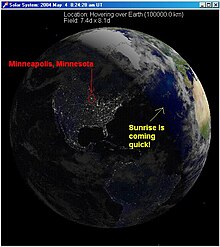   (Thanks Rob!)     (Thanks Anton !) 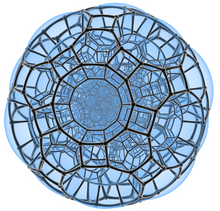 (Thanks Fritz!)  (Thanks Anton!) 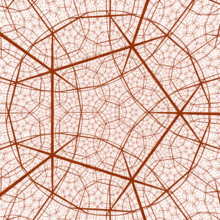 (Thanks Jeff!)  Thanks Rocchini!  Thanks Roice!  More thanks Rocchini!  Thanks Roice! 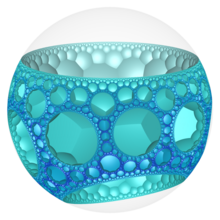 Thanks Roice!   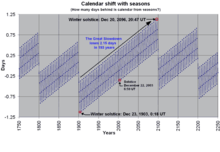 |
About me
[edit]- Born April 16, 1968, I live near Minneapolis, Minnesota. I like astronomy, science, math, running, bicycling, reading, writing, photography, and gardening.
- I do computer programming for a living, mostly in Java, Javascript, C#, C++, and Delphi.
- I have a B.S. in Computer Science and Mathematics, minor in Physics (astronomy), 1991, from the U of MN.
- https://twitter.com/Tom_Ruen
Pictures
[edit]
- Astronomy Picture of the Day, November 12, 2003
- Wikipedia:Picture of the day/November 10, 2005
- User:Tomruen/2006featuredpicture #10 Copied from on Commons Picture of 2006 [1]
- Mars animation 2003, or simulated rotation April 2014
- Sunrise corona animation
- File:Venus_set_may_29_2020.gif Crescent venus setting
- File:Asteroid_flyby_2015_TB145.gif 2015 TB145 Halloween flyby animation
- File:Saturn view from earth 2009.gif Saturn animation, 2009 ring crossing
- File:Saturn timelapse-29 years.gif Saturn animation for 29 years. (or as seen from Jupiter, 2000-2333, or from Pluto, 1890-2138
- File:Lunar_eclipse_chart_close-2010Dec21_animation.gif 2010 lunar eclipse animation, or April 2014 lunar eclipse
Links
[edit]- {{sfn|Smith|2005|p=25}} shortened footnote
- {{rp|pages}} reference page * <nowiki>{{anchor|text}} .. linking between sections
- {{clear|left}} ... flow text past left images, like <DIV style="clear:both;"/>
- [[Category:Minor planet object articles (unnumbered)]]
- <source lang="pascal">
- {{columns-list|colwidth=10em| ...}}
- Edit counter
- Texvc TEX formatting on wiki
- Unicodes 2000-2fff Inverted-Y: & #8516; = ⅄, hex 2144
- http://frodox.ch/infoboxplanet/rapid.php
- http://word2cleanhtml.com
- http://bmanolov.free.fr/html2wiki-tables.php HTML to Wiki Converter
- unicodes: Isomorphism ≅, approximate ≈, ↔
- Special:Newimages
- Wikipedia:Keyboard shortcuts
- Wikipedia:Vandalism in progress
- Wikipedia:WikiProject Wiki Syntax
- Wikipedia:Template messages/Merging and splitting
- Wikipedia:Deletion policy
- {{ deletebecause|Reason. }}
- {{ deprecated|date= }}
- Wikipedia:Oversight - permanent deletion of revision history
- αβγδεζηθικλμνξοπρστυφχψω
- Macro codes:
- $1000 = US$36,624 in 1900
- {{Unreferenced}}
- {{cleanupdate| DATE }}
- {{db-author}} - delete article with wrong name
- {{db-f1}} - delete image with wrong name
- <:nowiki>
- Wikipedia:Template messages/Cleanup
- Wikipedia:What Wikipedia is not
- Wikipedia:Bot requests#Script generation of uniform polyhedra articles
- [2]
- Wikipedia:WikiProject Mathematics
Wiki news
[edit]- [3] Jimmy Wales is founder of Wikipedia, the self-organizing, self-correcting, ever-expanding, and thoroughly addictive encyclopedia of the future. In this presentation, he explains how Wikipedia's collaborative system works, and why it succeeds. (Recorded July 2005 in Oxford, UK. Duration: 20:47)
- Jimmy Wales’s benevolent Wikipedia wisdom By DAVID HOROVITZ 07/01/2011
|
| 6 November 2024 |
|



